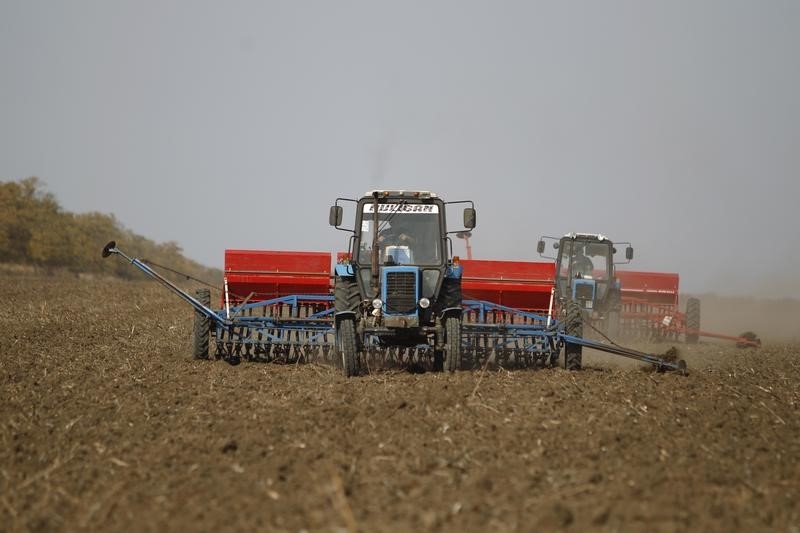By Rod Nickel
WINNIPEG, Manitoba, Sept 8 (Reuters) - Farmers in Western
Canada, whose crops have been battered this year by drought and
hail, may be in line for a break in the weather as they bring in
the harvest.
Temperatures are forecast to remain above freezing for more
than a week, delaying the first significant harvest frost later
than normal. For farmers still waiting for canola to ripen,
milder than usual overnight temperatures may generate a few more
bushels of production per acre.
"On a year where we've basically had frost every month
except July, it would be pretty important," said Trevor
Scherman, who farms near Battleford, Saskatchewan. "It would be
awesome if it would hold off."
Scherman had to replant all of his canola in May after the
spring frost, pushing back its maturity date. Crops in his area
have also been damaged by dry conditions and hail.
The first killing frost during harvest - temperatures cold
enough to stop plants from growing further - is not likely to
reach Alberta and central Saskatchewan until around Sept. 16,
and touch Manitoba on Sept. 18, said Don Keeney, senior
agricultural meteorologist at Maryland-based MDA Information
Systems.
Normally, the first widespread frost occurs up to a week
earlier.
Canada, the world's biggest canola producer and
sixth-largest wheat grower, is on track to producing the
smallest all-wheat and canola crops in five years, due mainly to
dry weather, Statistics Canada reported last month.
Even so, global grain supplies are poised to reach record
highs, and the United States is expected to produce a bumper
crop of soybeans, which like canola, is used to produce
vegetable oil and meal.
Most of the region's canola will advance enough to avoid
harm from frost by next week, except for some pockets of
Saskatchewan's northern growing area and western Manitoba, said
Bruce Burnett, weather and crop specialist at grain marketer G3
Canada Limited.
Frost may damage soybeans, a late-developing crop, in
Manitoba and southeastern Saskatchewan, he added.
Wheat, barley and oats are less vulnerable to frost.
Heavy rains late last week forced farmers to suspend the
harvest in Canada's main crop-growing region.
Burnett estimates that farmers have harvested 35 percent to
40 percent of Western Canada's canola and just over half of
spring wheat, ahead of the usual pace due to brisk progress in
southern areas.
(Editing by G Crosse)
